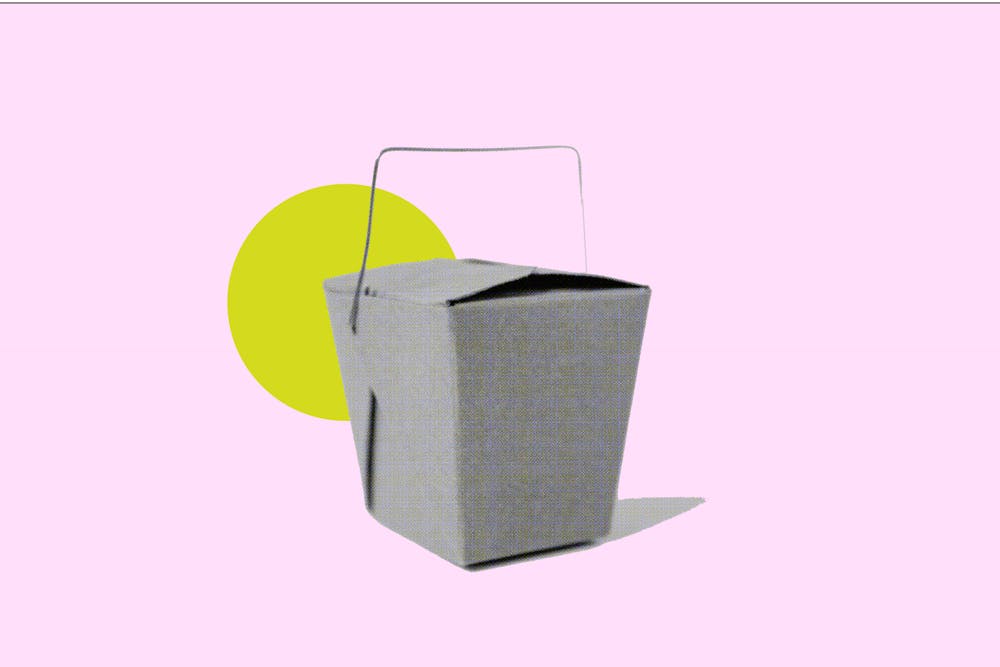For the past year, COVID–19 has forced us to adapt to new precautionary guidelines, health protocols, and social pressures. One of the newfound pressures that has developed is the idea that we should be ordering meals to our homes because it's safer—whether that comes in the form of getting groceries delivered with InstaCart or eating takeout via Uber Eats or DoorDash. This seems like a convenient way to minimize the risk of spreading COVID–19 at grocery stores or restaurants. At the beginning of the pandemic, we saw a slew of articles advocating for the use of delivery services to combat COVID–19 and support restaurants. But for many people, including myself, this push for delivery highlights income inequality and ethical concerns.
As a first–generation, low–income (FGLI) student, I've experienced quite the ethical dilemma of balancing my financial insecurity with my desire to protect myself and others from COVID–19. Almost every day since the summer, I've had a nightly internal battle of deciding whether to order dinner from a delivery service, go to a grocery store to buy ingredients for a meal, or just not eat. With food insecurity on the rise, this is a battle many FGLI students and low–income Americans have dealt with since the beginning of the pandemic. We ask ourselves a question that we shouldn't have to ask: Should I eat tonight? I can't afford to order in, but I don't have any groceries at home. That's a common inner–monologue I've experienced while living in my off–campus home these past two semesters.
Unfortunately, I'm definitely not alone. Ordering in simply isn't an affordable alternative to frequenting the grocery store and restaurants in person. According to a study conducted by The New York Times, ordering food for delivery can be up to 91% more expensive than cooking at home or picking up food in person. When you use a delivery app, your money goes to the delivery worker, restaurant, and the tech company that runs the app. The extra fees—delivery, tax, service, and small order charges—pile on. You also have to factor in an appropriate tip. And in some cases, you even pay the restaurants or stores some extra fees of their own. The bill adds up quickly.
Considering that millions of Americans have reported that their households haven't had enough to eat or can't keep up with bill payments during the pandemic, it's certainly not feasible for everyone to adapt to the pressure of changing the way we eat. One of my friends told me that their roommate villainized them for going to the grocery store rather than using a delivery service like Instacart. This sentiment ignores the financial strain created by delivery services' extra fees, as well as the emotional strain of being told to do something you can't afford.
Using these services also shifts the risk of spread onto delivery workers. Although they face greater exposure to the virus by travelling from restaurants to homes, many workers haven't received hazard pay—or they receive as little as 78 cents extra per day for working during the pandemic. So it's not as simple as it sounds to just opt for delivery, even when you have the financial means to do so. Making that choice requires accepting the fact that you are shifting your risk onto another person, which isn't a small factor when deciding what to eat for dinner.
As college students, we tend to be lower risk than older populations and essential workers like delivery drivers. As a result, you may be better off picking up pre–ordered food from restaurants yourself if you're not high–risk. This also avoids the price gouging of delivery services and provides restaurants with direct support.
It's true that delivery workers need demand in order to keep their jobs, and that might be a reason that you opt for delivery. The pandemic has created a complex relationship between food, ethics, and safety, and the 'best' way to be safe and support your community may differ slightly for people depending on income and personal values. But recognizing that complexity is vital. Shaming people for not subscribing to your solution doesn't solve anything.
Even if you're financially secure enough to always use delivery, it isn't your place to tell others who may not be capable of doing the same how they should be living. Take this as a reminder that the COVID–19 pandemic has completely changed how we function individually and as a society. This seemingly simple solution to minimizing COVID–19's spread is definitely not that simple.







